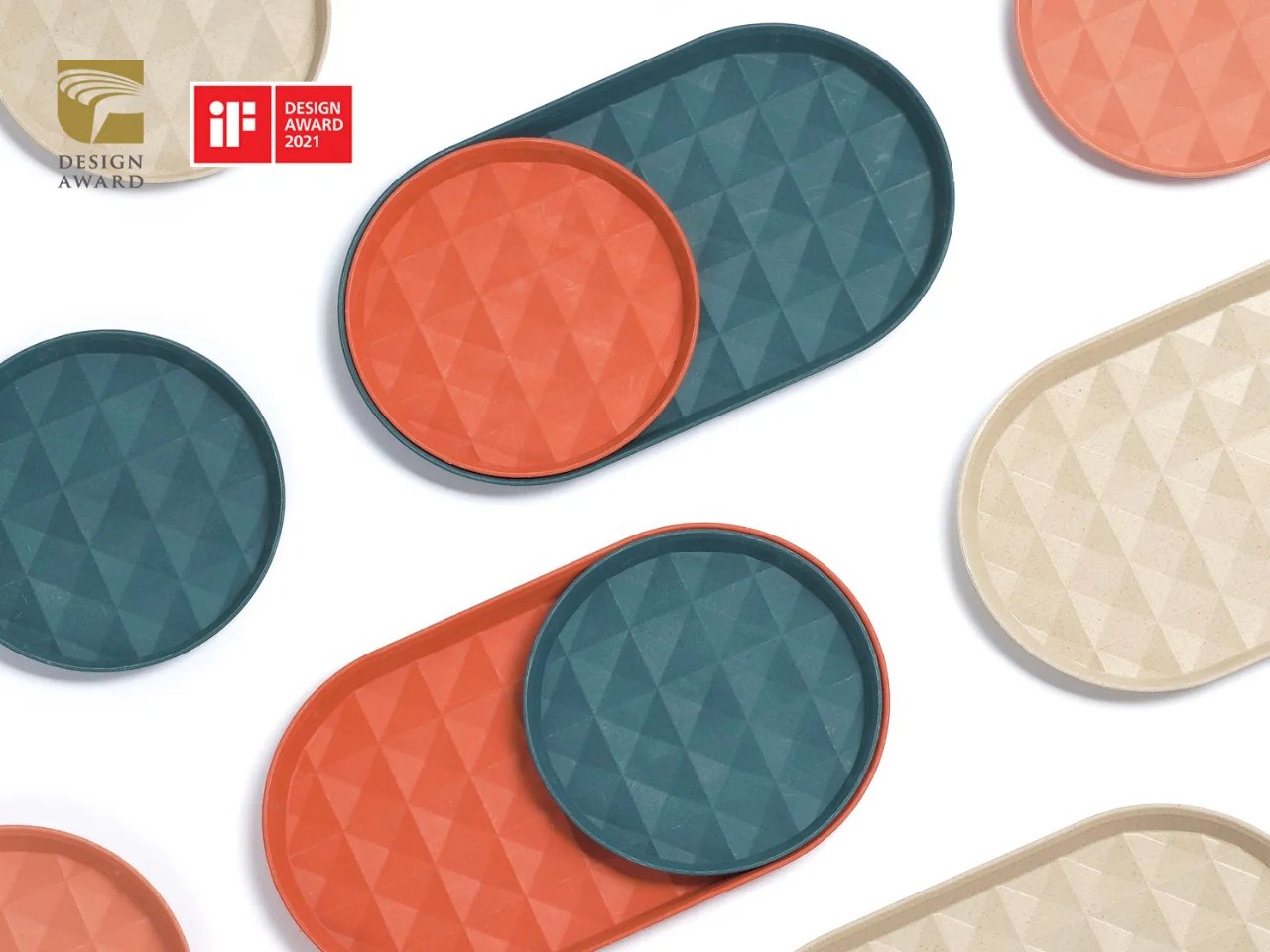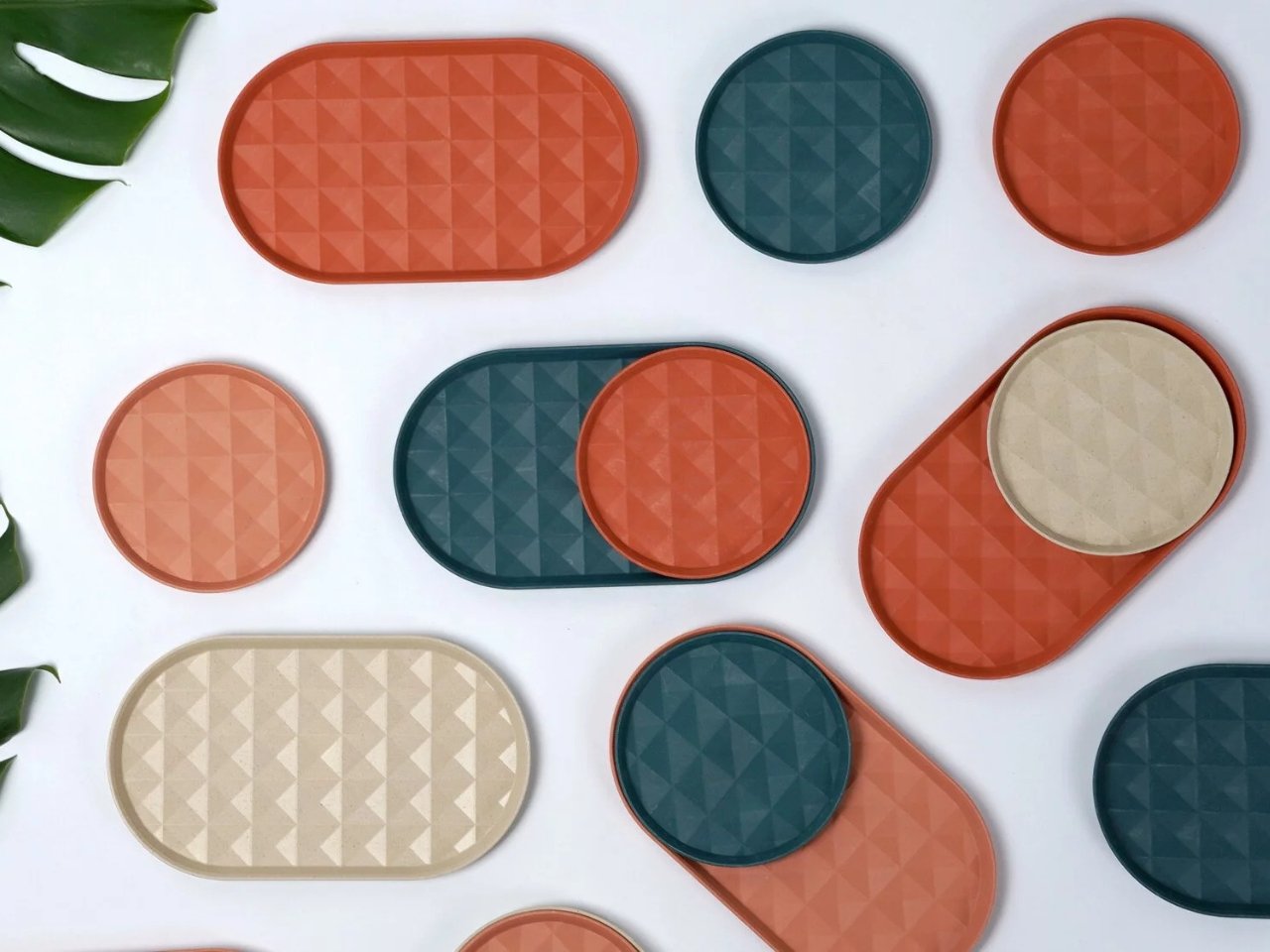
Taiwan is facing two significant environmental challenges: the persistent problem of plastic waste and the limitations of industrially biodegradable plastics like PLA, which require specialized facilities for decomposition. As calls for more natural, truly biodegradable materials grow louder, the re-ing Bamboo Fiber Plates project by DOT Design Co Ltd stands out as a refreshing solution.
Unlike traditional tableware made from plastic or even PLA, re-ing Bamboo Fiber Plates are crafted entirely from 100% plastic-free bamboo fiber. Bamboo is a remarkable material for several reasons. It grows quickly, reaching maturity in just six years without the need for pesticides. This makes it a highly renewable resource. Additionally, bamboo naturally possesses antibacterial properties and impressive structural stability, making it ideal for food-related uses.
Designer Name: DOT Design Co Ltd
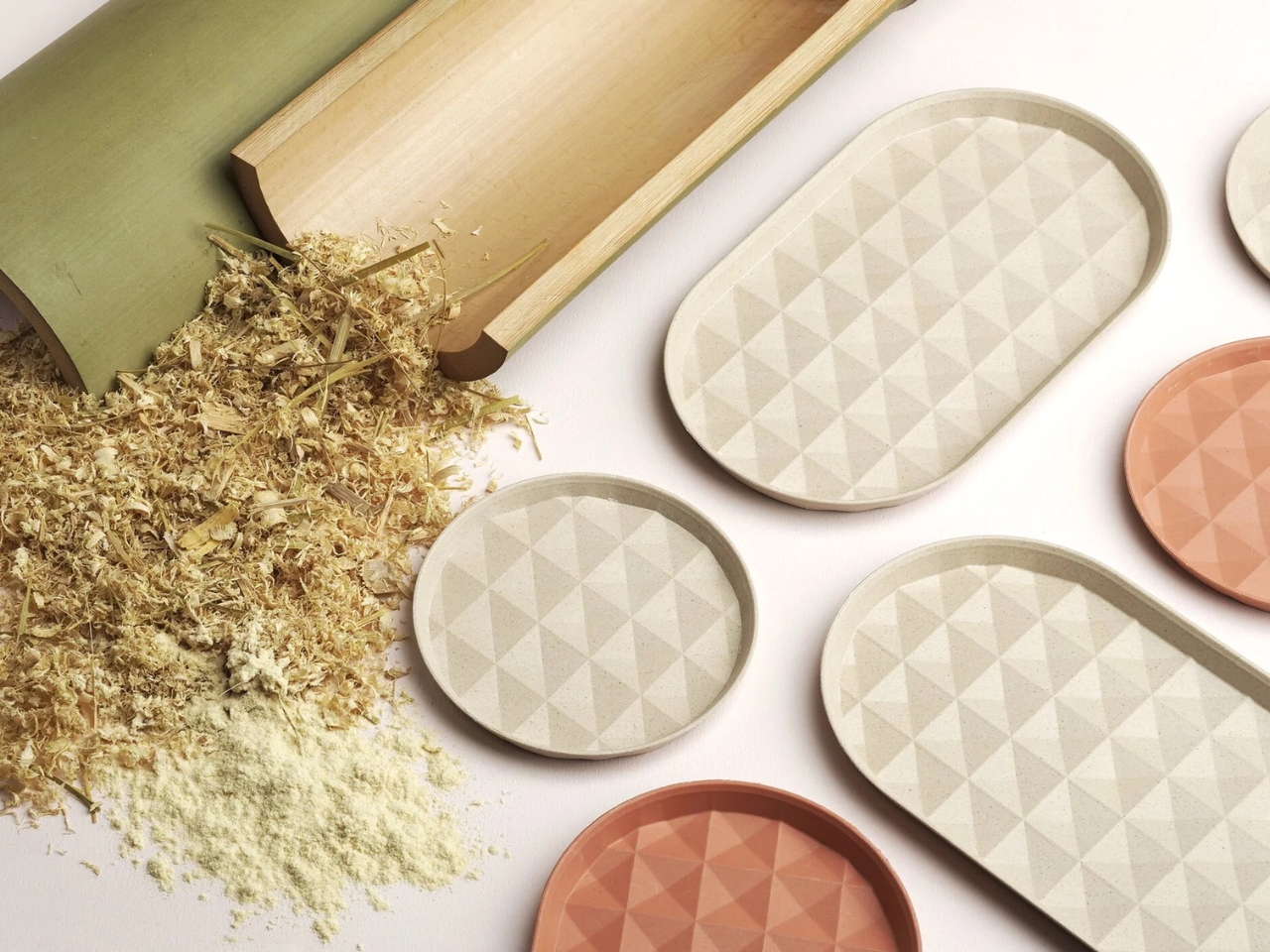
The design of these plates goes beyond just sustainability. Each piece features a diamond-patterned surface that not only enhances durability but also makes stacking simple and space-saving. The use of natural, food-grade pigments brings a soft, refined texture to the tableware. These pigments give the plates a welcoming look that fits in beautifully with both casual meals and more sophisticated settings. The collection’s round and oval shapes strike a balance between practicality and visual charm, catering to modern tastes and everyday needs.
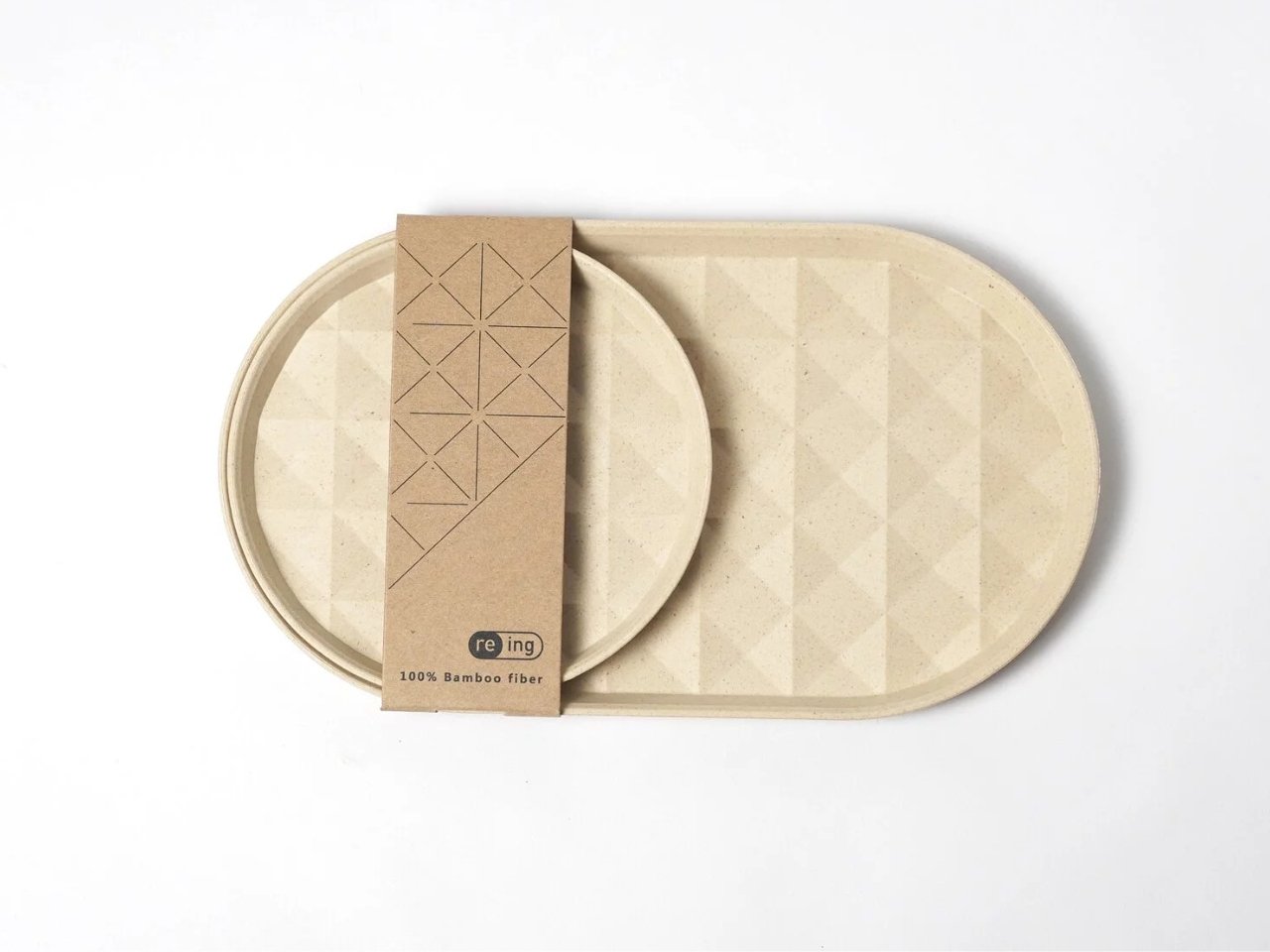
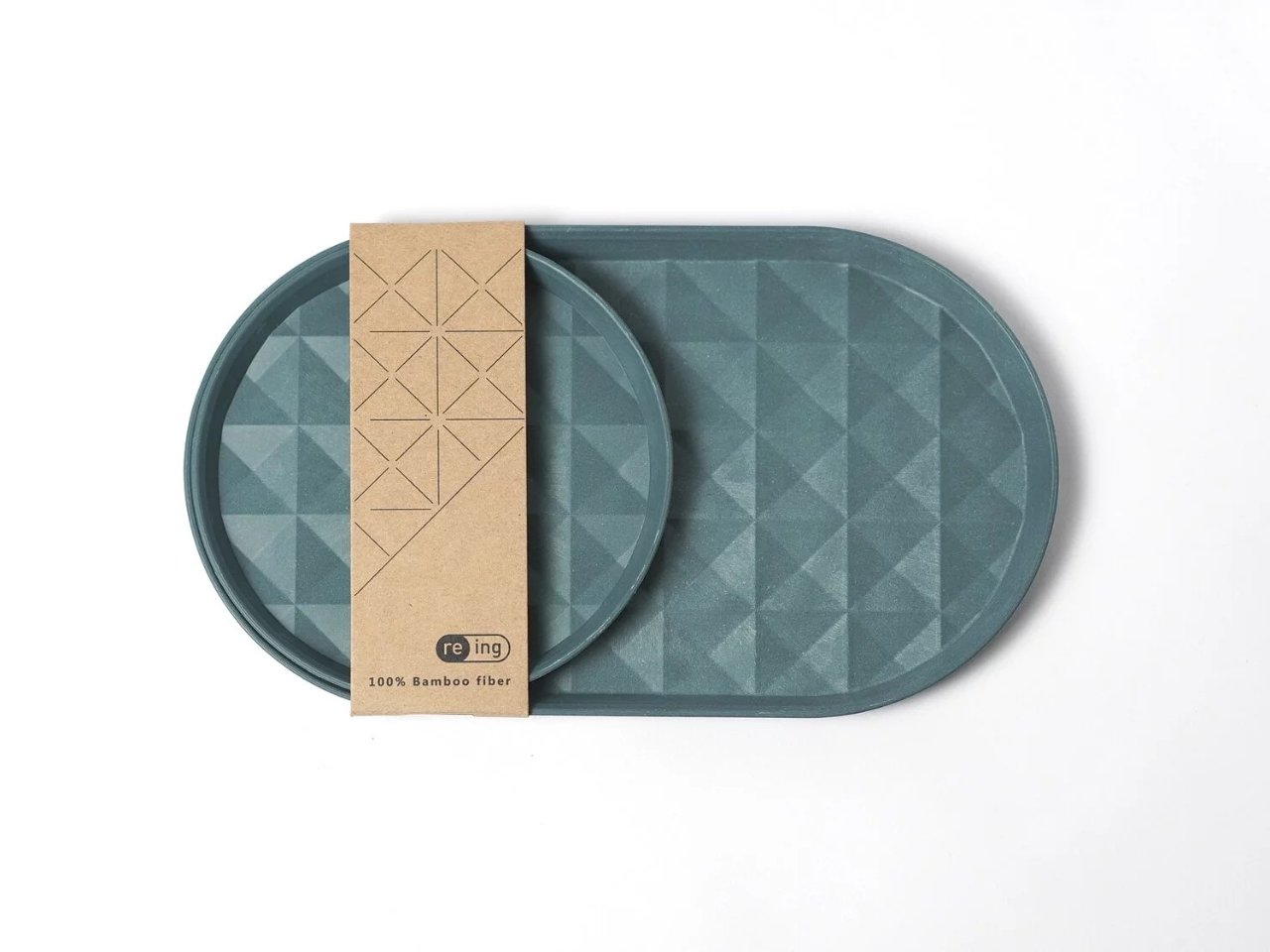
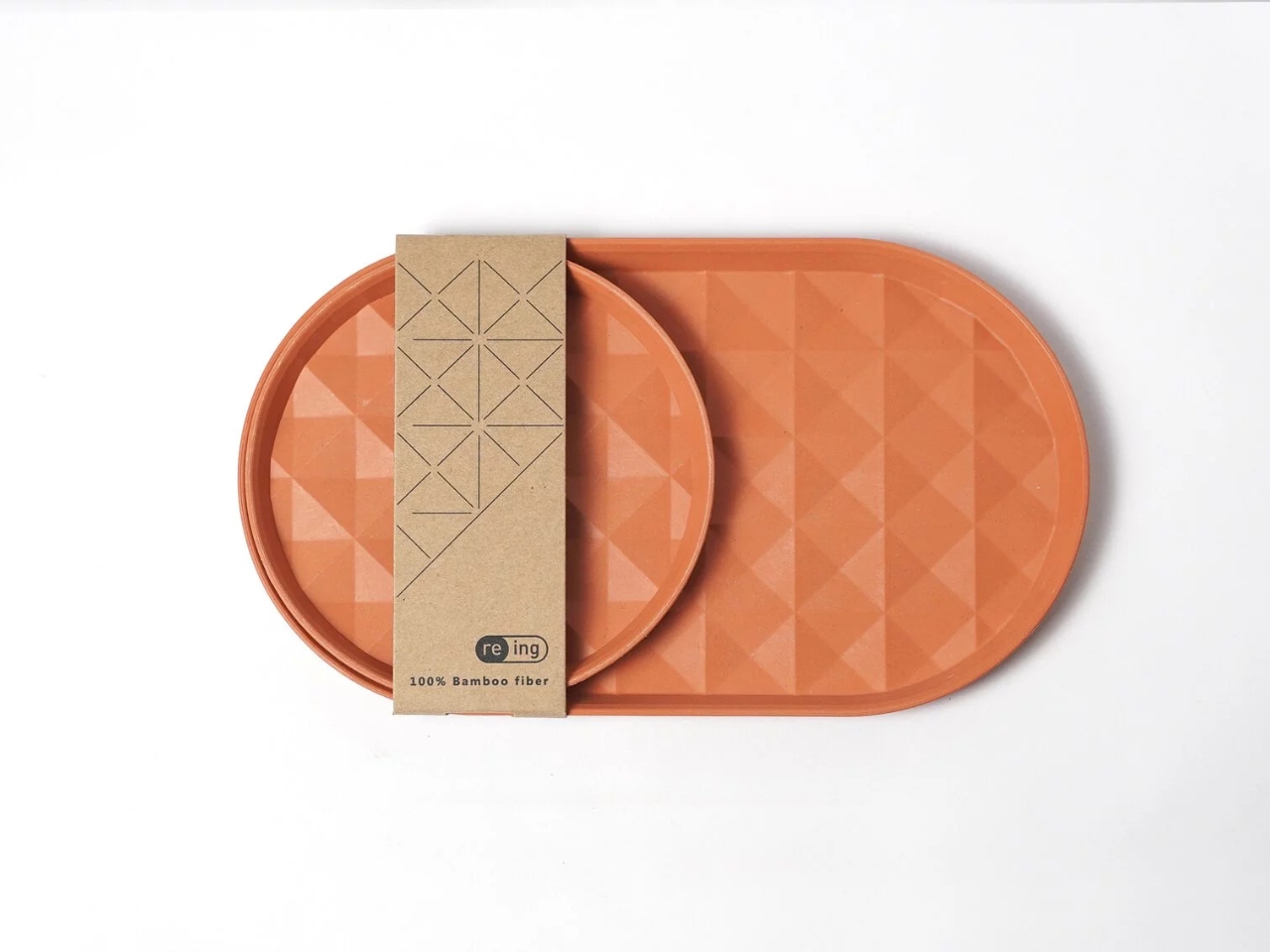
By focusing on bamboo fiber, the project is taking an important step in reducing the use of mixed plastics and problematic PLA materials. The goal is to encourage more sustainable consumption habits and to set a new standard for contemporary tableware. Every plate used helps lower our dependence on plastics, eases the strain on landfills, and brings sustainability into our daily routines in a tangible way.
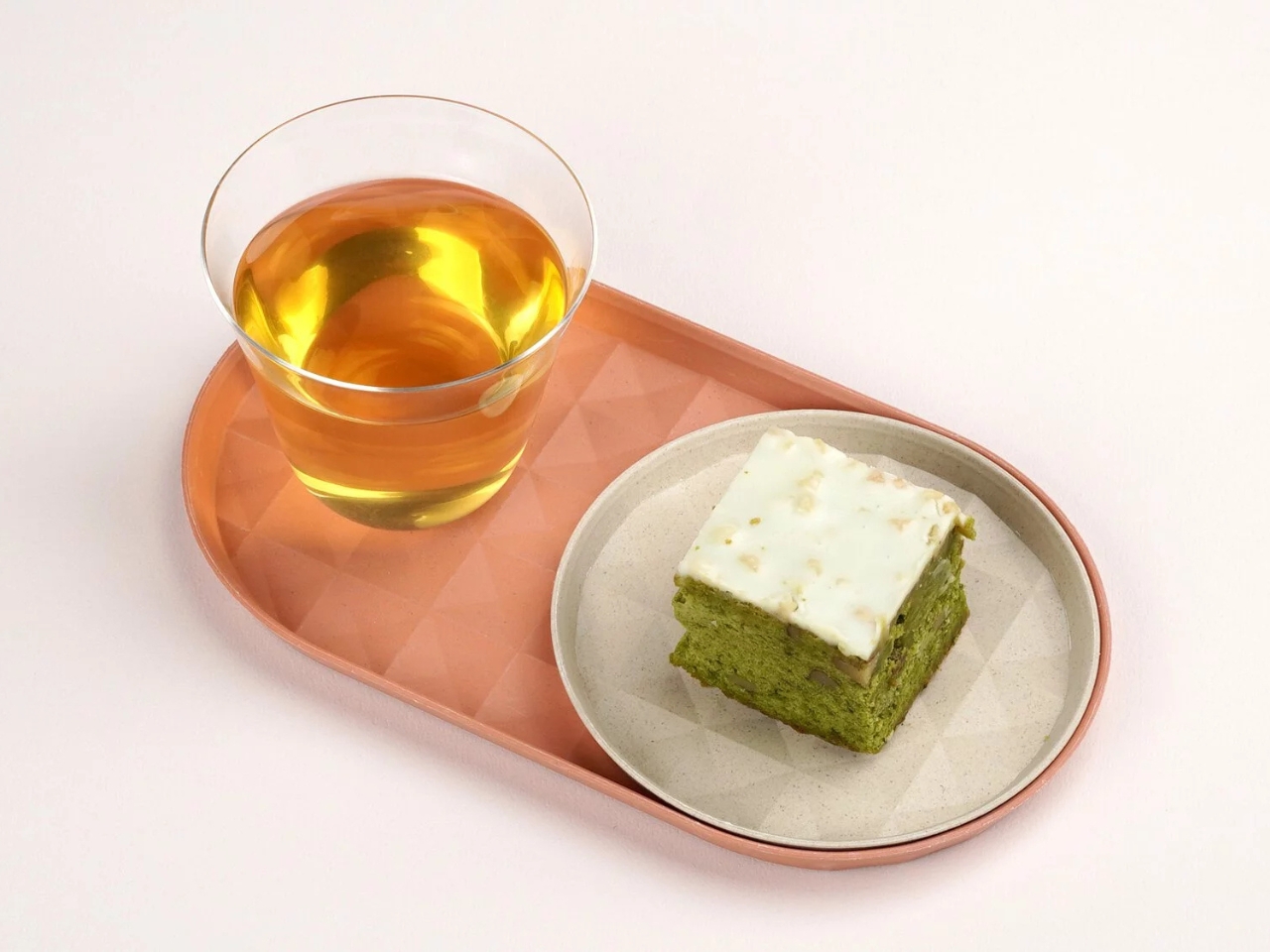
The re-ing Bamboo Fiber Plates are the result of a close collaboration between Taiwan’s top bamboo material manufacturers and experts in sustainable design. This initiative is about much more than a single product as it represents a platform for the circular economy, connecting industrial production, innovative design, and consumer awareness. By creating a closed loop where materials are thoughtfully sourced, designed, used, and eventually returned to nature, the project is making a real impact.
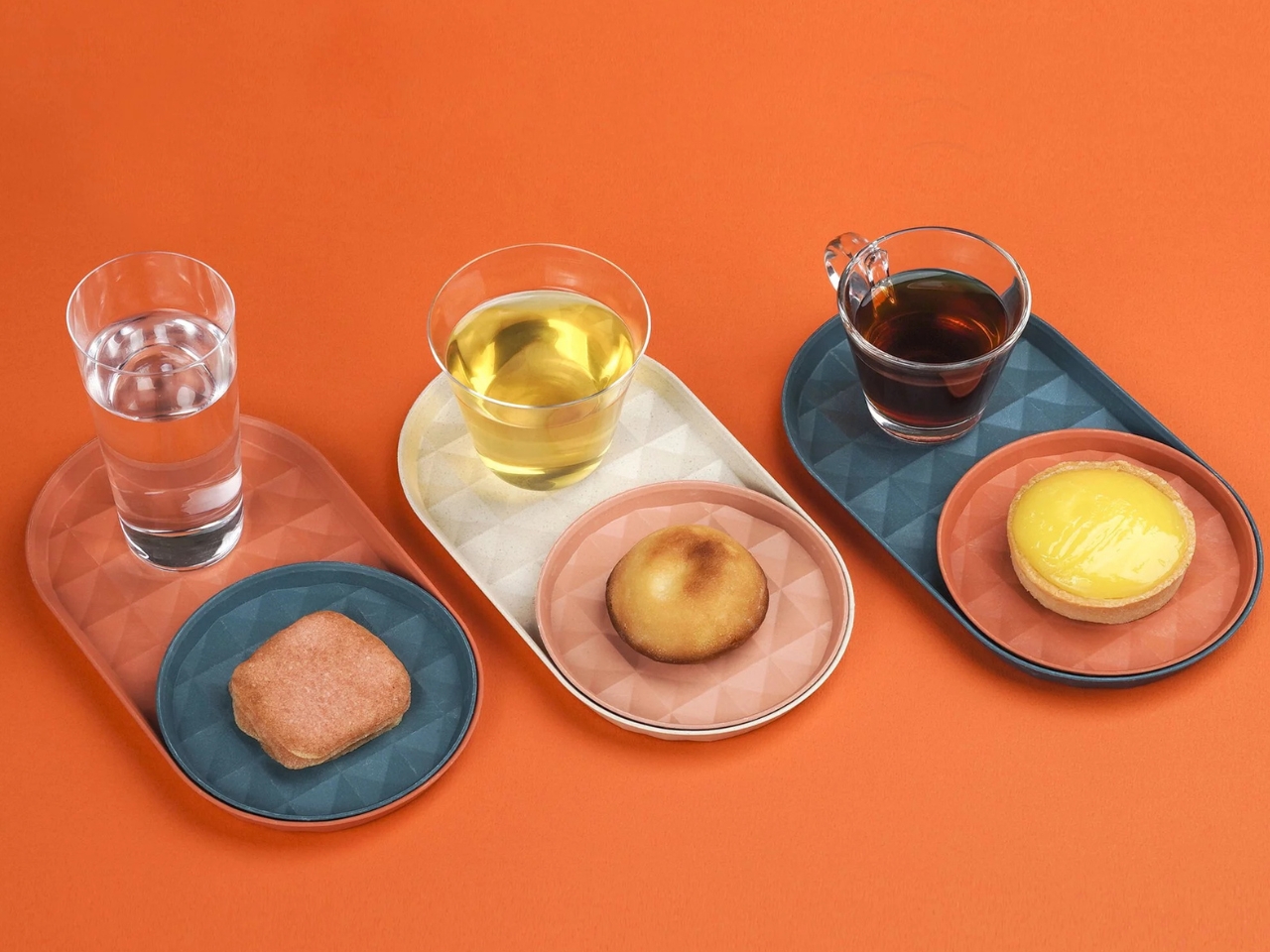
Looking ahead, the vision for re-ing extends far beyond bamboo or even Taiwan. The team hopes to adapt and expand this circular design approach by using other regional, plant-based resources around the world. While bamboo is the starting point, this innovation could evolve into a global movement, inspiring new lifestyle choices rooted in sustainability and respect for diverse culinary cultures.
